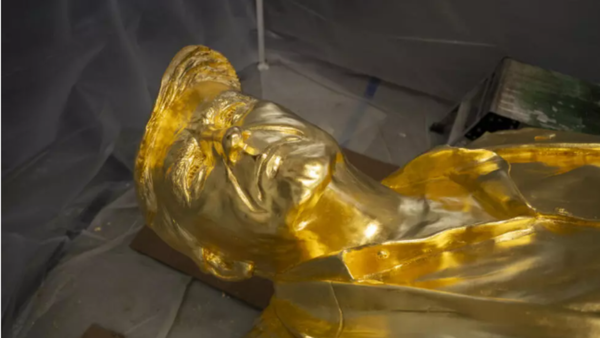
Residents of India’s most populous state, Uttar Pradesh, have voted in the first phase of the seven-phase assembly elections expected to be a bellwether of the popularity of Prime Minister Narendra Modi and his Hindu nationalist Bharatiya Janata Party (BJP).
Uttar Pradesh, a state of about 200 million people in India’s north, has long been a stronghold of the BJP, which has been accused of stoking Hindu nationalist sentiment that has resulted in violence against minority groups, particularly Muslims.
Some opinion polls indicate the party is likely to stay in power, with a victory likely to give a boost in its bid for a third successive victory at nationwide parliamentary polls due by 2024.
“If people want to have a good government, then they have to come out to vote,” 41-year-old Acharya Udit Narayan Diwedi, who said he voted for the BJP, told Reuters news agency.

Meanwhile, a defeat or slide in support in Uttar Pradesh or the other two states controlled by the BJP that have elections in February could spell trouble in the national elections due in 2024.
The BJP has seen multiple defections to the Samajwadi Party, whose secular appeal has swayed voters from a wide range of castes as well as the Muslim community.
Farmers, an influential section of voters, are still furious at Modi for supporting agriculture laws that loosened rules around the pricing and sale of produce. They took to the streets in a year of protests before the Modi government bowed to their pressure in November.
The BJP is also facing allegations of mismanagement during the COVID-19 pandemic in the state after a calamitous surge in infections last year saw numerous corpses floating in the Ganges.
The polls come as educational institutions in southern Karnataka state were closed for their third day amid a controversy over a decision of some colleges to bar female students from wearing hijab, a headscarf worn by many Muslim women.
The move sparked protests from Muslim students who say they were being discriminated against, while Hindu supporters of the ban launched counterdemonstrations.
Reporting from Mandya in Karnataka, Al Jazeera’s Pavni Mittal said religious identity played a significant role in putting the BJP in power in Uttar Pradesh in the 2017 polls.
“But it’s been five years since then, and many of the Hindu voters who previously backed the party have not been very happy with its performance because of economic distress,” she added. “The polarisation that you see here [over the headscarf issue] could have an impact in terms of nudging these voters to vote along religious lines in a way that could benefit the BJP.”
The governing party in Uttar Pradesh, meanwhile, has sought to shore up support through massive infrastructure projects – including airports and highways – that they say will create jobs, as well as Hindu temples.
However, analysts are doubtful over whether huge public spending on such projects is enough to kick-start growth in the state, a largely poor and agrarian state where joblessness is rising.
Economist Santosh Mehrotra has said youth unemployment, based on an analysis of national labour data, has increased fivefold in the state under current Chief Minister Yogi Adityanath.
The polls opening on Thursday are also widely seen as a referendum on Adityanath, who has become emblematic of the Hindu right wing in the country. Some analysts believe he aspires to be the next prime minister.
The head of an influential Hindu temple, Adityanath’s rise has been marked by an increase in violence against Muslims, with numerous reports of lynching and other attacks.
The BJP has maintained that its social policies have supported all residents, regardless of caste and ethnicity.
Many minority residents see the BJP’s rise as directly connected to heightened divisions in the state.
“Until the Yogi government came, nobody pointed out a Hindu from a Muslim here,” Mohammed Noor, an auto-rickshaw driver in Lucknow, the state capital, told The Associated Press news agency. “But ever since the BJP has risen, they’ve created a feeling of divide, of difference – this has only grown.”
The final phase of the voting would be on March 7.







